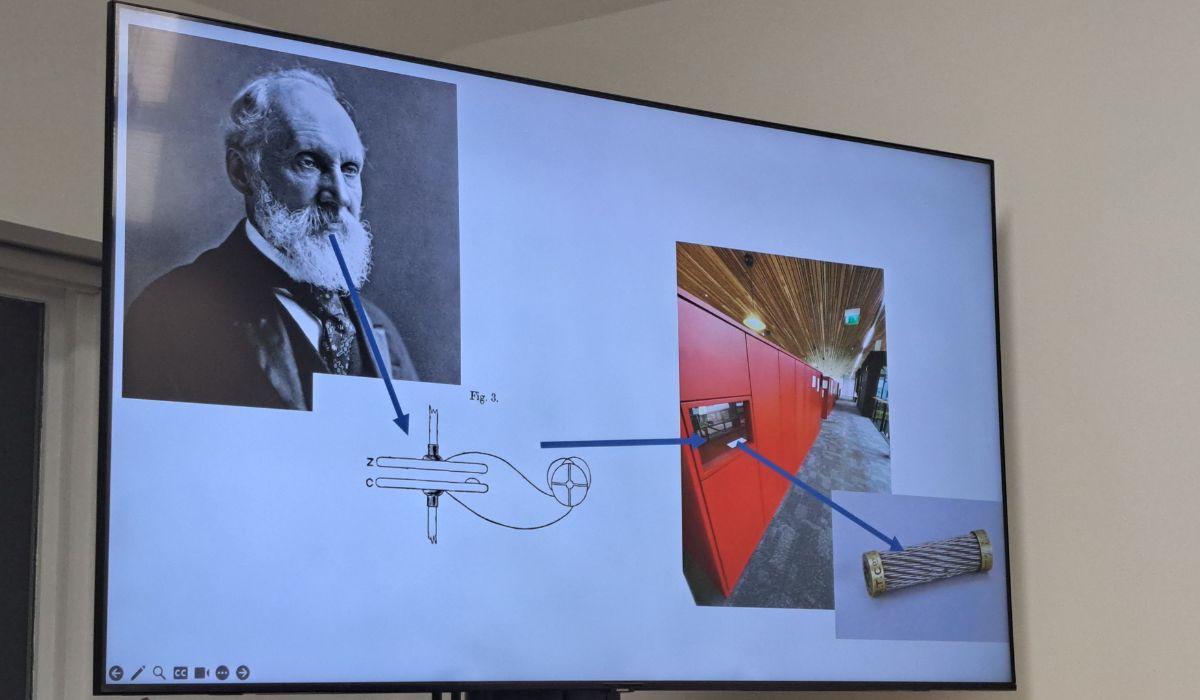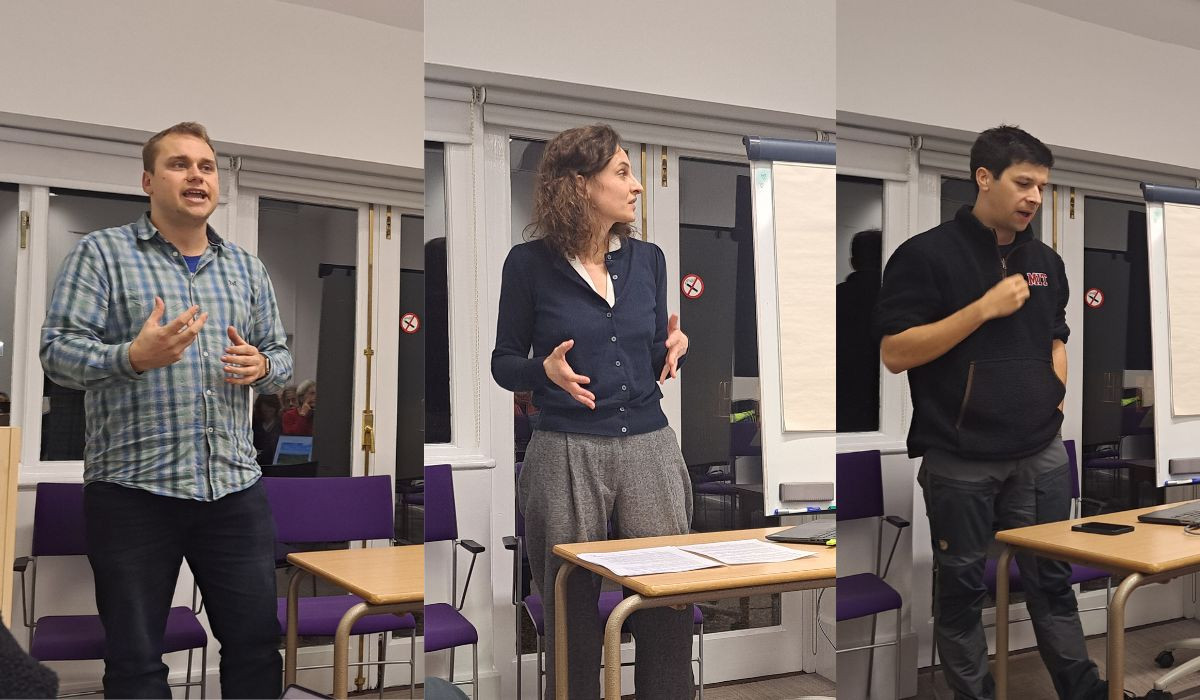Lucy Cavendish Fellows tackle climate change with their interdisciplinary and ground-breaking work.
On January 17, three of our Fellows presented thought-provoking talks at the College, delving into diverse aspects of the climate crisis. Their perspectives, ranging from historical narratives to sonic landscapes and thermodynamic principles, offered a nuanced and multifaceted understanding of this pressing issue.
Dr Liam Saddington: Rats, Coconuts and Pigs: British Colonialism and the Environment in the South Pacific
Today low-lying islands are seen as being on the frontline of the climate crisis. Western narratives construct islands as vulnerable spaces of nature - exposed to changing environmental conditions. However, these are not new - and draw on much older island imaginaries. Drawing upon archival work conducted in Auckland at the Western Pacific Archives, Liam will be tracing how environmental degradation, population displacement and marginality in British colonies in the South Pacific continues to shape contemporary climate discourses in the region.

Dr Franziska Strack: The Sounds of Climate Change
How does the earth sound like at the edge of extinction? What is the significance of acoustic changes in the biosphere? And can an acoustic framework inspire new avenues for political action and awareness in response to the current ecological crisis? My talk addresses these questions. Bringing together political theory, sound art, and media studies literature, it develops a sonic perspective on climate change. I suggest that a sonic framework draws attention to ecological transformations by tuning into the vibrations that circulate between human bodies and the planet. While common visualisations of climate data – such as dramatic images of droughts and wildfires or graphs of CO² emissions – often bypass the bodily register, the sounds of the same data affect bodies on and below consciousness. In doing so, they render audible the material and affective atmospheres that involve human bodies in events, and that both undermine and strengthen democratic responsiveness to climate-induced fears and inequalities.

Dr Tomi Baikie: A Review of Our Thermodynamic Overlords
How do magnifying glasses manage to focus light without a battery or a plug? This question will lead us to uncover the strictest laws of the Universe - the laws of thermodynamics. I’ll discuss some of the implications of the thermodynamics of light in the context of climate change and energy capture.





